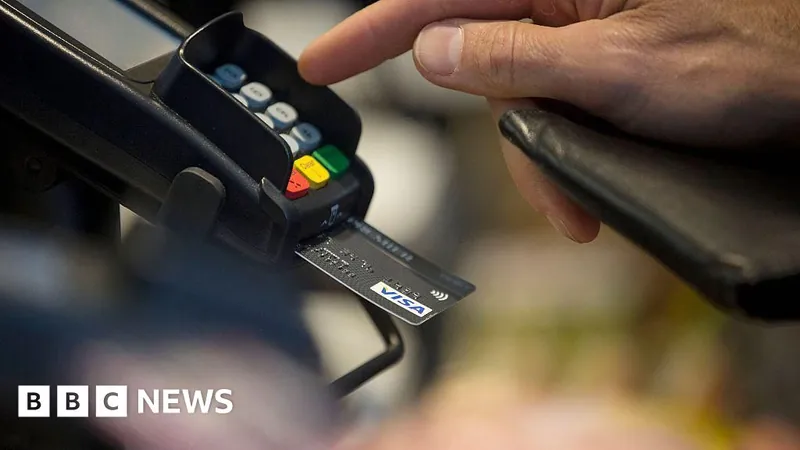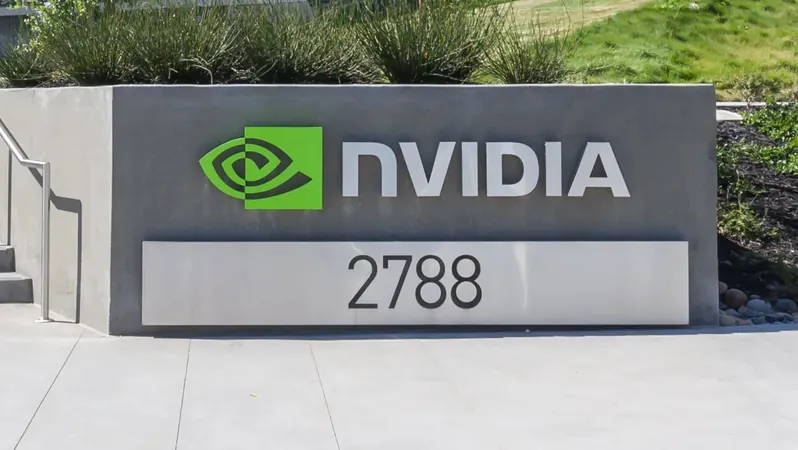
Visa Under Fire: US Government Files Lawsuit Accusing Financial Giant of Monopoly Practices!
2024-09-24
Background of the Lawsuit
The United States Department of Justice has launched a bold legal assault against Visa, accusing the payment processing titan of unlawfully suppressing competition to safeguard its stranglehold over the debit card sector. This groundbreaking lawsuit raises eyebrows and warns consumers about the potential implications for innovation and costs in a market dominated by Visa.
Allegations Against Visa
According to the lawsuit, Visa allegedly retaliated against businesses seeking alternative payment networks and engaged in questionable practices that involved placating potential rivals to maintain its market supremacy. With Visa reportedly processing over 60% of debit transactions in the US and generating a staggering $7 billion in annual fees, the financial impact on consumers and small businesses could be severe.
Visa's Defense
In defense of its actions, Visa's general counsel, Julie Rottenberg, labeled the accusations as "meritless." She contended that the company’s widespread adoption among businesses and consumers stems from its "secure and reliable network." Interestingly, Rottenberg emphasized that Visa is just one among numerous competitors in a rapidly evolving debit card landscape, countering claims of monopoly by pointing to emerging players thriving in the market.
Biden Administration's Antitrust Efforts
This lawsuit marks yet another chapter in the Biden administration's vigorous antitrust efforts, signaling a shift toward tackling monopolistic practices with greater urgency than seen in previous administrations. The scrutiny isn't just limited to US borders; Visa has faced lawsuits and careful examination from businesses and competition regulators in regions like Europe and Australia, indicating a global discontent with its practices.
The Investigation Header
The investigation into Visa's operations began in 2021, when officials sought to uncover the influence the company wields over the debit market. Attorney General Merrick Garland highlighted the impact of this dominance, stating that Visa's ability to impose inflated fees has far-reaching consequences, ultimately affecting not just the cost of debit transactions, but the pricing of goods and services across the board. "Merchants and banks pass along those costs to consumers, either by raising prices or reducing quality or service," he remarked.
Details of the Lawsuit
With the lawsuit officially filed in federal court in New York, the Justice Department alleges that Visa has crafted a convoluted network of agreements that effectively requires businesses to route a specific volume of transactions through Visa's network—these tactics have been branded as creating illegal "exclusive deals." Interestingly, this behavior reportedly intensified following the introduction of a law in 2012 aimed at promoting competition in the debit card industry.
Coercive Agreements with Tech Companies
Furthermore, the lawsuit claims that Visa has wielded its dominant market position to coerce tech companies like PayPal into signing agreements that bind them to process payments through Visa, under the threat of hefty fees. The Department of Justice is asking the court to officially declare Visa a monopoly and prohibit the continuation of these alleged anti-competitive behaviors.
Expert Opinions
Experts like George Alan Hay, a professor at Cornell Law School and authority on antitrust law, note that while the case may not break new ground, it still presents substantial hurdles for the government. One point of contention will be how the debit card market is distinctly defined, especially in light of Visa's claimed 60% market share.
Market Reaction
As Visa faces mounting legal and public relations challenges, the financial markets have reacted, with shares in the company dropping more than 5%. This case serves not only as a potential turning point in the debit card market but also a major test of the government’s commitment to curbing monopolistic practices in the rapidly changing landscape of digital payments. Will Visa’s powerful reign finally face its reckoning? Stay tuned as this legal battle unfolds!









 Brasil (PT)
Brasil (PT)
 Canada (EN)
Canada (EN)
 Chile (ES)
Chile (ES)
 España (ES)
España (ES)
 France (FR)
France (FR)
 Hong Kong (EN)
Hong Kong (EN)
 Italia (IT)
Italia (IT)
 日本 (JA)
日本 (JA)
 Magyarország (HU)
Magyarország (HU)
 Norge (NO)
Norge (NO)
 Polska (PL)
Polska (PL)
 Schweiz (DE)
Schweiz (DE)
 Singapore (EN)
Singapore (EN)
 Sverige (SV)
Sverige (SV)
 Suomi (FI)
Suomi (FI)
 Türkiye (TR)
Türkiye (TR)